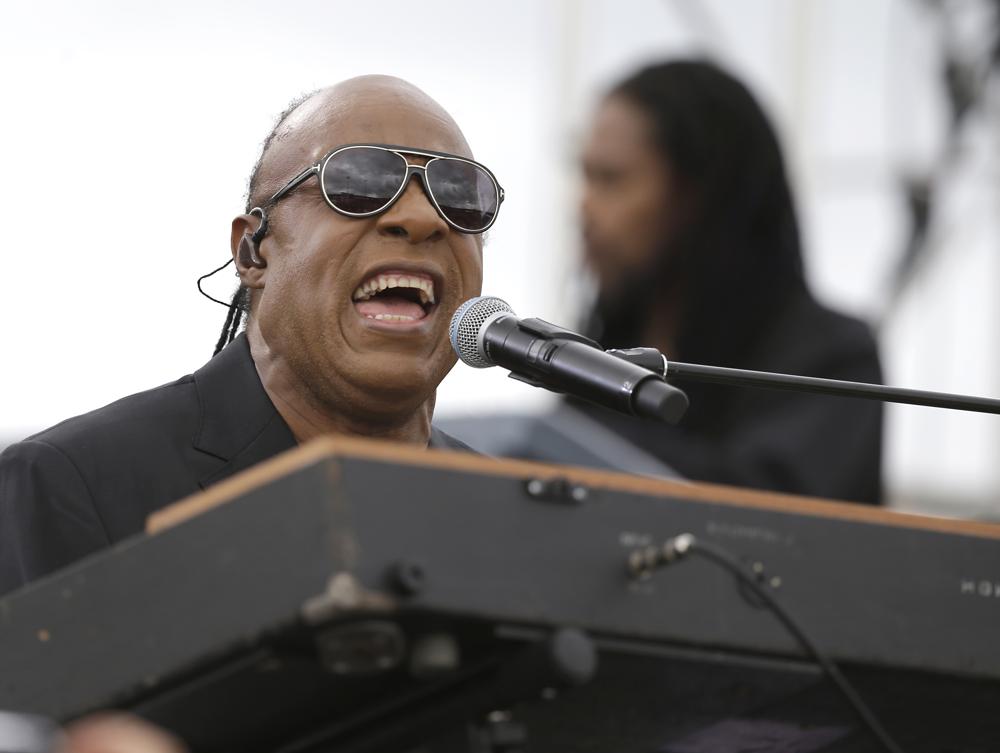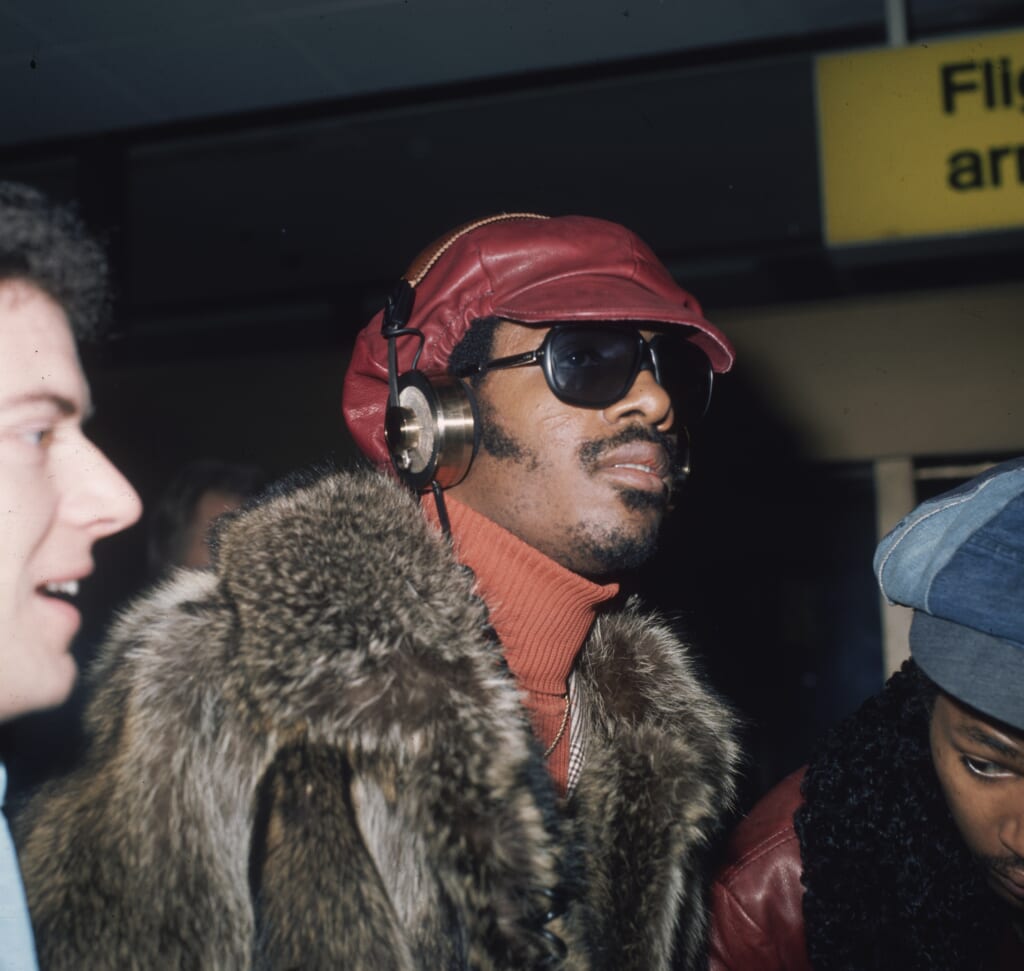Stevie Wonder, Black radio, and the fight for a Martin Luther King Jr. holiday
The legendary musician was part of the reason that the King holiday came to be. Here's the story.
When Stevie Wonder decided to take up the challenge of making sure that the memory of the Rev. Dr. Martin Luther King, Jr. did not fade in the mists of time, and that his life’s work had not been in vain, there were only a few artists making music that reflected the consciousness of the freedom struggles of Dr. King’s time.
But Stevie was perhaps the biggest pop music star in the world at that time, and that made all the difference.
I was working closely with him, consulting generally and running his newly purchased station, KJLH-FM in Los Angeles. So when he called me one day in 1980 and said he wanted me to help him in catalyzing a national effort to make Dr. King’s birthday a national holiday I was thrilled.

After all, I was a huge fan of Stevie’s precisely because of the way he often weaved his moral consciousness into his brilliant music. To have the opportunity to now bring to bear his megawatt star power to catalyze the community and the media by using his radio station, where I served as general manager, for such an historic endeavor was a great honor. To play even a small role was exhilarating.
Wonder is without question the single most important figure in the realization of an MLK National Holiday, because his inner vision, passion and perseverance were the driving force in galvanizing all the forces that came together to make it happen.
The strategy was to kick off the campaign with a huge national rally on the steps of the Capitol in D.C., with folks from all over the country responding primarily to the concerted calls from black and urban radio stations.
I led a delegation of three chartered plane loads of KJLH listeners to the rally where Stevie, Jesse Jackson and others would first speak, and then Stevie and other artists would perform to rally the crowd — a mega-media political and cultural music event, Dr. King style. This would kick off a nationwide tour headlined by Stevie barnstorming across the country to drum up further support that would encourage the media and lawmakers to take heed.
It worked like a charm.
Stevie had asked the legendary Bob Marley to co-headline the tour with him,- and Bob readily agreed. But Marley soon found out he would not be able to do so because he had been diagnosed with cancer, which took his life soon afterward. So Stevie turned to our friend, and my colleague from our college days, the brilliant rebel poet-musician Gil Scott-Heron, to join him.
On Jan. 15, 1981, I remember being backstage with just Stevie, Jessie and Gil before we all went out on stage to a crowd of over 100,000 folks in the cold, January wind. Jessie spoke eloquently, stirring the crowd, and Gil performed some of the great work he and Brian Jackson had gained acclaim for, (and for which he will received a Lifetime Grammy Achievement Award posthumously in 2012.

Stevie then gave the speech he had asked me to write for him: …“We ought to have a way to honor this human being and reaffirm the ideals he lived and died for; to honor him through a national holiday would also…represent another step forward in officially and symbolically embracing the lives and dreams of all the people who compose the American nation… For this dream, our dream, goes beyond politics, beyond oppression, beyond mere history… but not beyond hope or love, for this dream shall never die.”
But the whole event really took off when he began singing his magnificent “Happy Birthday” ode to Dr. King. The freezing crowd erupted in an explosion of joy and reverie that swept the cold away and warmed the hearts of everyone within earshot. From there Stevie, Gil and various other artists continued touring the country, proselytizing for the creation of the national holiday.
The follow up strategy over the next year was to try to get a few key states to make King Day a legal holiday, to create momentum toward its ratification throughout the country. New York,California, and Illinois were the primary targets. Black radio stations were to play a huge role in the effort.
One morning my news director, Carl Nelson, came into my office and said he had just gotten an emergency call from then California State Senator Maxine Waters, telling him that the state legislature was scheduled to vote on the bill to make MLK birthday a legal holiday that day and the prospects did not look good that it would be ratified … would the station please do what it could to get the community involved?
I immediately wrote a one-minute editorial on the situation asking all of our listeners to call a certain number at the legislative switchboard demanding that the bill be passed. We ran the editorial every fifteen minutes for the next three hours until we got a call from Ms. Waters’ office saying please tell the audience to stop calling because they had just about broken the switchboard down and now it looked like the bill would pass.
A few hours later, the bill did pass, making California one of the very first key states to do so. It created the momentum for other states to do so quickly as well, and that groundswell provided the foundation of support for eventual ratification of the congressional bill.
In 1983, after much inside-the-beltway maneuvering, empowered by the ongoing staunch support of the black community and others, and through the power of black radio, President Ronald Reagan signed the bill. The rest, as they say, is history.
WATCH PRESIDENT RONALD REAGAN SIGN MLK DAY INTO LAW:
I can’t help thinking about the important, often crucial role that Black pop music stars, and the Black community media who showcased them, played in the struggles for equal rights and justice as they unfolded under Dr. King’s historic leadership.
Harry Belafonte, Lena Horne, Sam Cooke, Aretha Franklin, Curtis Mayfield, Marvin Gaye, Diana Ross and many others contributed mightily while he was alive.
Then in the wake of his murder, the Herculean effort by Wonder and others who joined him to commemorate King’s life’s work on behalf of our nation, through the creation of the first national holiday celebrating the achievements of an African American citizen, speaks volumes indeed.
Don Mizell is an attorney, creative executive and music producer. In 2005, he won a Grammy for Album of the Year as a producer of Ray Charles’ “Genius Loves Company.” He received the NAACP Image Award for Community Service for his work with Stevie Wonder to create the Martin Luther King, Jr. National Holiday.
Cheryl Mizell, public affairs director, Miami’s WEDR 99 JAMZ FM contributed to this essay.
Have you subscribed to the Grio podcasts, Dear Culture or Acting Up? Download our newest episodes now!
TheGrio is now on Apple TV, Amazon Fire, and Roku. Download theGrio today!
More About:Opinion Black History Month Music News







